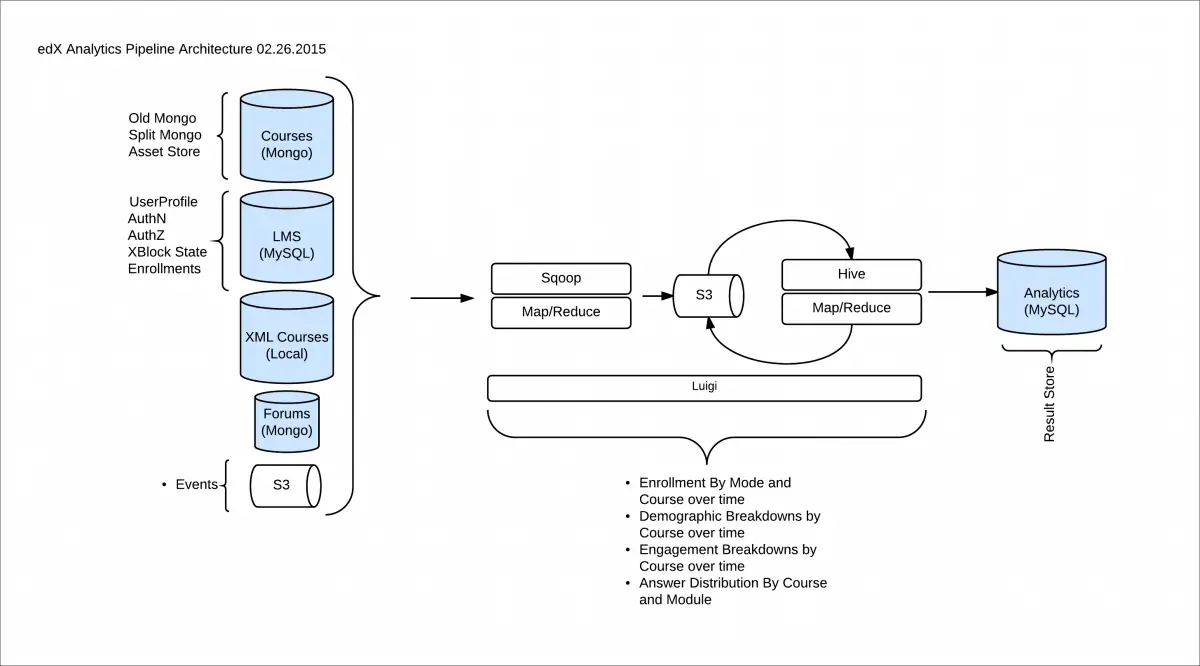
What’s Next For Open edX Developers In 2024?
Open edX stays on top in the continuously developing arena of online education by providing reliable tools for developing and delivering online courses. In 2024, several trends are expected to shape the development of Open edX, enhancing its functionality and user experience. Here’s a look at what’s next for Open edX developers this year.
1. Elevated Adoption Of AI And Machine Learning
Artificial intelligence (AI) and machine learning are becoming integral to many online platforms, and Open edX is no exception. Open edX developers are leveraging these technologies to provide personalized learning experiences, enhance course recommendations, and automate administrative tasks. This trend improves the user experience and significantly reduces the workload for educators and administrators.
Personalized Learning Paths: AI can analyze student performance and preferences to create customized learning paths. By using AI, Open edX developers can ensure that learners obtain content tailored to their unique needs.
Automated Grading: Machine learning algorithms can automate grading for assignments and quizzes, providing instant feedback to students. This allows Open edX developers to create more efficient and scalable course management systems.
Enhanced Analytics: AI-driven analytics offer deeper insights into student engagement and learning outcomes, helping Open edX developers to continuously improve the learning experience.
2. Enhanced Mobile Learning Experiences
With the increasing use of mobile devices for online learning, optimizing Open edX for mobile has become a priority. Open edX developers are focusing on creating responsive designs and mobile-first features to ensure that learners have a seamless experience regardless of the device they use.
Responsive Design: Ensuring course content is easily accessible and readable on various screen sizes. Open edX developers are tasked with making sure that courses look and function well on both smartphones and tablets.
Offline Capabilities: Allowing learners to download content and access it without an internet connection is another area where Open edX developers are innovating. This feature is specifically valuable for amateurs in areas with erratic internet access.
Mobile-Optimized Assessments: Designing quizzes and assignments that are easy to complete on mobile devices. Open edX developers are working to ensure that these assessments are not only functional but also engaging on smaller screens.
3. Integration Of Gamification
Gamification is an effectual mode to grow engagement and motivation among learners. Open edX developers are incorporating gamified elements into courses, such as badges, leaderboards, and interactive challenges.
Badges and Certificates: Awarding badges and certificates for completing modules or achieving high scores. Open edX developers can create systems that reward learners for their progress and achievements.
Leaderboards: Creating a competitive environment by displaying top performers. This can drive engagement and encourage learners to put more effort into their studies.
Interactive Challenges: Designing course activities that are engaging and interactive. Open edX developers can make learning more fun and effective by incorporating elements of play.
4. Focus On Accessibility
Making online courses surely accessible to all learners, including those with disabilities, is becoming increasingly important. Open edX developers are implementing features that comply with accessibility standards and guidelines.
Screen Reader Compatibility: Ensuring content is readable by screen readers for visually impaired learners. Open edX developers must ensure that all text and images are properly tagged and described.
Keyboard Navigation: Allowing navigation through courses using a keyboard is crucial for learners with mobility impairments. Open edX developers are enhancing the platform’s usability by ensuring all functions can be accessed via the keyboard.
Captioning and Transcripts: Providing captions for video content and transcripts for audio materials. This not only helps hearing-impaired learners but also those who prefer reading over listening.
5. Advanced Analytics And Reporting
Data-driven decision-making is vital for the success of online courses. Open edX developers are enhancing analytics and reporting tools to provide educators with detailed insights into student performance and course effectiveness.
Learner Progress Tracking: Monitoring student progress and identifying at-risk learners. Open edX developers are creating more sophisticated tracking tools to help educators intervene early.
Engagement Metrics: Analyzing how students interact with course materials helps in understanding what works and what doesn’t. Open edX developers are enhancing these metrics to provide more actionable insights.
Outcome Analysis: Evaluating the effectiveness of course content based on learning outcomes. Open edX developers are developing tools that can correlate specific course activities with student success.
6. Increased Use Of Microlearning
Microlearning involves delivering content in small, easily digestible chunks. This strategy is acquiring favour due to its effectiveness in improving retention and engagement. Open edX developers are creating tools and features that support microlearning strategies.
Short Video Lessons: Breaking down content into short, focused video lessons. Open edX developers can enhance these lessons with interactive elements to keep learners engaged.
Micro-Assessments: Frequent, low-stakes assessments to reinforce learning. Open edX developers are designing assessments that are quick to complete and provide immediate feedback.
Bite-Sized Modules: Designing course modules that can be completed in a short amount of time. Open edX developers are ensuring these modules are comprehensive yet concise.
7. Expansion Of Community And Collaboration Features
Collaborative learning and community building are becoming essential components of online education. Open edX developers are introducing features that facilitate interaction and collaboration among learners.
Discussion Forums: Enhancing forums to encourage meaningful discussions. Open edX developers are implementing new tools to make forum interactions more dynamic and engaging.
Group Projects: Facilitating group assignments and projects. Open edX developers are creating platforms that allow for seamless collaboration among learners.
Peer Review: Implementing peer review systems for assignments and projects. This not only helps learners improve through feedback but also fosters a sense of community.
8. Integration With Other Edtech Tools
Open edX developers are increasingly focusing on integrating the platform with other educational technologies. This interoperability enhances the functionality of Open edX and provides a more seamless experience for both educators and learners.
LMS Integration: Integrating Open edX with other Learning Management Systems (LMS) to provide a unified learning experience. Open edX developers are ensuring smooth data transfer and compatibility between systems.
Third-Party Tools: Incorporating tools like Zoom for live classes or Google Docs for collaborative work. Open edX developers are working on APIs and plugins to make these integrations effortless.
Analytics Platforms: Linking with advanced analytics platforms to provide deeper insights. Open edX developers enable educators to pull data from various sources to provide a comprehensive view of learner performance.
Conclusion
In 2024, trends in Open edX development aim to enhance learning experiences and accessibility and leverage advanced technologies. Open edX developers must stay ahead by focusing on AI integration, mobile optimization, gamification, accessibility, advanced analytics, micro-learning, community features, and EdTech tool integration. Their role is crucial in advancing online education by enhancing platform capabilities and contributing to digital learning. Embracing these trends will set new benchmarks, making education more accessible, engaging, and effective globally. As 2024 progresses, innovations by Open edX developers will significantly impact the e-learning industry.





